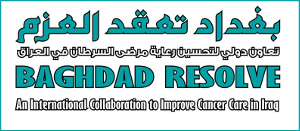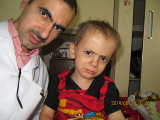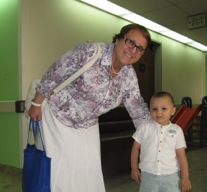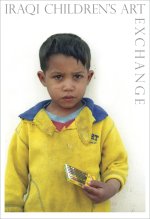Baghdad Resolve


Dr. Mazin with a sad boy
Help can be a delicate matter. We know from our experience and from the literature emerging from the growing network of international NGOs and humanitarian organizations, that working together successfully, across the divides of language, culture and politics requires more than good intentions. Learn about the local context, ask lots of questions and listen with humility recommends the Partners in Health (PIH) Program Management Guide (2011). We have been doing that for some years. To the extent that Westerners, with limited direct access to Iraq can, we understand the context in which our Iraqi partners have been working over these last decades. We believe we understand the challenges and frustrations of all those trying to care for children in Iraqi hospitals, the doctors, nurses and parents who have not been able to provide adequate care or protection for children amidst the chaos in Iraq.
PROJECT GOALS

Dr. Salma with a small boy
WHO IS INVOLVED
Salma Abbas Al-Hadad, MD Pediatric Hemato-Oncologist, Baghdad College of Medicine. Children Welfare Teaching Hospital, Medical City, Baghdad
Mazin F. Al-Jadiry, MD Pediatric Hematologist/Oncologist, Children's Welfare Teaching Hospital, Medical City, Baghdad
Corrado Girmenia, MD Department of Hematology, Sapienza University of Rome, Italy
Kathleen E. Houlahan, MSN, MHA, RN Nurse Director, Hematology/Oncology/Stem Cell Transplant, Dana-Farber Cancer Institute and Boston Harvard Medical School, USA
Mark W. Kieran, MD, PhD Director, Pediatric Medical Neuro-Oncology, Dana-Farber Cancer Institute and Boston Harvard Medical School
Leslie Lehmann, MD Director, Pediatric Hematopoietic Stem CellTransplant Program; Dana-Farber Cancer Institute and Boston Harvard Medical School
Maria Luisa Moleti, MD, Pediatric Hemato-Oncology Unit, Department o Hematology, Sapienza University of Rome, Italy
Luigi Ruco, MD, Pathology Unit Director, Department of Clinical and Molecular Medicine, Sant’Andrea Hospital, Sapienza University ofRome, Italy
Anna Maria Testi, MD, Pediatric Hemato-Oncology Unit Director, Department of Hematology, Sapienza U
Stefania Uccini, MD, Pathology Unit, Department of Clinical and Molecular Medicine, Sant'Andrea Hospital, Sapienza University of Rome, Italy
CONSULTING
Richard Brunswick, M.D. Board Certification in Family Medicine. Certificate of Added Qualification (CAQ) in Geriatrics. M.S.W. Smith College School of Social Work, M.P.H. UMASS Amherst. He is the author of Can't Quit? Bullsh*t.
Paula Green , Director, Peacebuilding and Conflict Transformation Program. Professor of conflict transformation at SIT Graduate Institute, and the founder-director of Conflict Transformation Across Cultures (CONTACT), a graduate certificate program of the SIT Summer Peacebuilding Institute held annually for peacemakers from around the world.
Linda Liebenberg, Ph.D. is Co-Director of the Resilience Research Centre and Adjunct Professor at the School of Social Work, Dalhousie University. She is a methodologist with an interest in image-based methods and mixed-method designs. Linda’s research examines the use of these methods in understanding the lives of children and youth living in challenging contexts.
Mary C. Smith Fawzi, Sc.D., Assistant Professor at Harvard Medical School in the Program in Infectious Disease and Social Change in the Department of Global Health and Social Medicine. \Dr. Smith Fawzi is an epidemiologist trained at the Harvard School of Public Health with direct experience running NIH-funded research and training projects. She has international experience in study design and/or implementation in Tanzania, Iraq, Thailand, Peru, Haiti, and Kazakhsta
Michael Ungar, Ph.D. is Co-Director of the Resilience Research Centre. He is also a Killiam Professor of Social Work, University Research Professor, and Professor, in the School of Social Work at Dalhousie University.
